I Ching, Yijing or Zhou Yi
"Oracle of the moon": © 2000 LiSe
 Yi Jing, Oracle of the Moon
Yi Jing, Oracle of the Moon


The orphan of Zhao
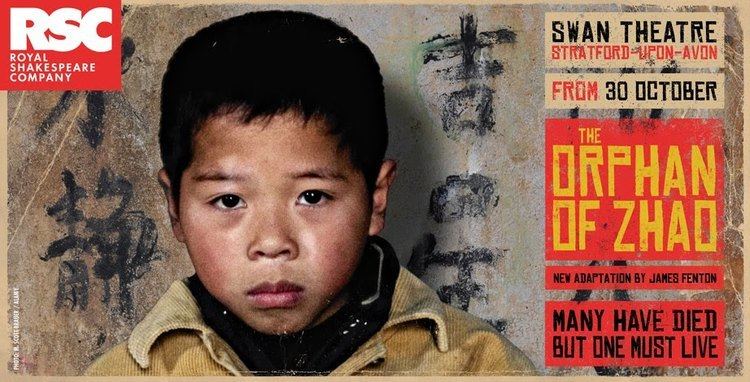
Verse 96
You may reside for a time at a faraway destiny
A small orphan boy may be entrusted to you
The time of meeting is approaching, do not arrive late
Laughter and shouting
Gathering in a place not your home
Everyone happy, healthy and in harmony.
"You may reside for a time at a faraway destiny" is about the wife of Baili Xin.
"A small orphan boy may be entrusted to you" about the play 'The Orphan of Zhao'.
"The time of meeting is approaching, do not arrive late" about the frienship of the qin-player Wu Boya and Zhong Ziqi.
The second half of the poem is about the value of these plays. They may be about drama, but their purpose is to bring everyone a great time.
The Orphan of Zhao
A Chinese play from the Yuan era, attributed to the 13th-century dramatist Ji Junxiang. The play has as its full name 'The Great Revenge of the Orphan of Zhao'. It revolves around revenge, sacrifice and courage.
The story of the Chinese play The Orphan of Zhao.
There is a massacre, in which almost an entire clan is wiped out by a power-hungry minister. When two babies are switched, the orphan of the clan, the sole surviving Zhao, is adopted by the very minister responsible for the massacre. As the orphan comes of age, he learns that his adoptive father is the murderer of his clan.
From The Guardian
Oct.30, 2012
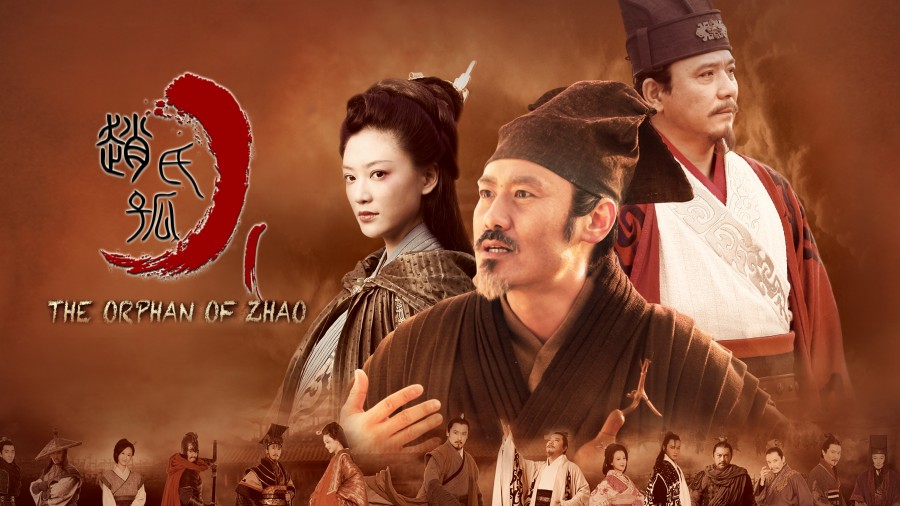
The play is divided in six parts, comprising five acts (折 zhe) and a wedge (楔子 xiezi), which may be an interlude or—as it is in this case—a prologue. It contains both dialogue and songs.
The story of The Orphan of Zhao takes place during the Spring and Autumn period, approximately 771 to 476 BC (or according to some authorities until 403 BC, which corresponds roughly to the first half of the Eastern Zhou Period).
Images from the movie 'Sacrifice', based on 'Orphan of Zhao'.
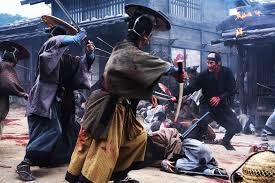
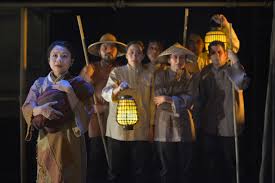
Lady Zhuang entrusts her newborn child to the physician Cheng Ying, a retainer to the Zhao family.
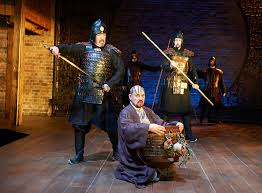

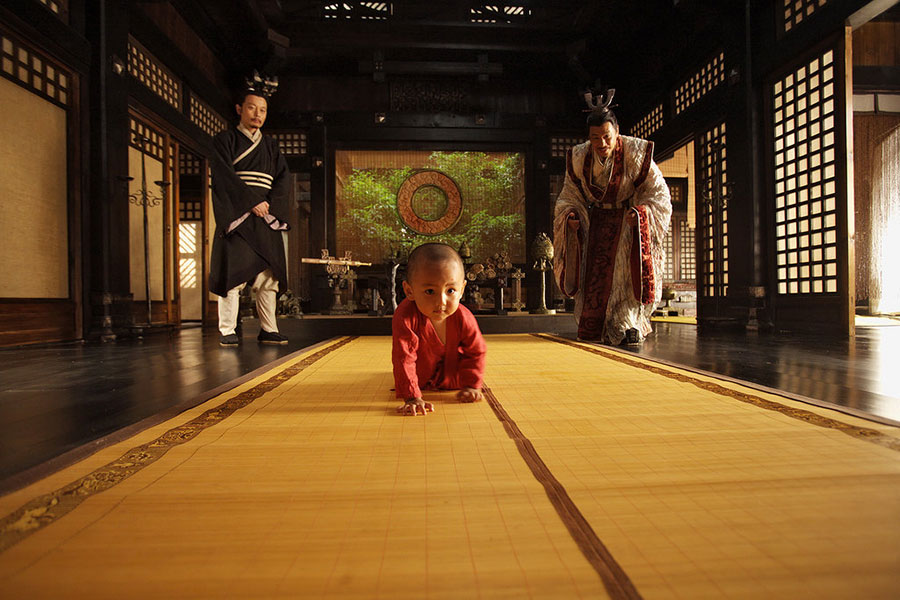
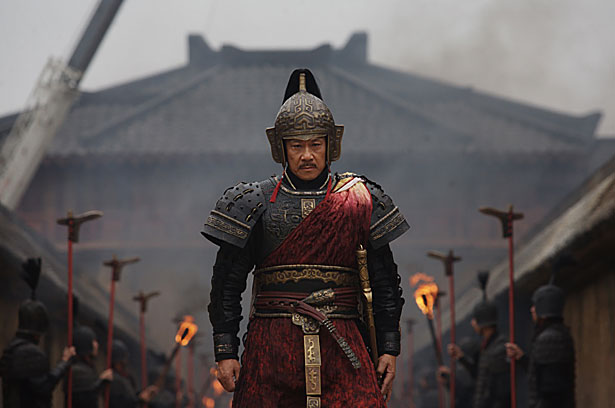
Prologue
Duke Ling was the ruler of the Jin state. In his court, Minister Zhao Dun and General Tuan Gu were two of his most influential subordinates. However, Tuan Gu had a deep hatred for Zhao Dun. He wanted to destroy his rival, Zhao Dun, and exterminate the Zhao family. General Tuan Gu succeeded in framing Zhao Dun, and slaughtered 300 members of the Zhao family. Soon thereafter, a decree was forged in the duke's name to order the death of General Zhao Shuo, the son of Zhao Dun. Zhao Shuo had namely been spared during the massacre as he was married to Lady Zhuang, the daughter of Duke Ling. When General Zhao Shuo receives the forged decree, he commits suicide.
First act
Zhao Shuo and his wife were expecting a child, but the infant was born after the tragic circumstances involving his father's death. Tuan Gu, intending to get rid of the newborn infant, orders General Han Jue to surround the palace. Lady Zhuang entrusts her newborn child to the physician Cheng Ying, a retainer to the Zhao family. However, she knew—as Cheng Ying had indicated—that she would be pressured to reveal where her child is, thus she took her own life. As the physician Cheng Ying was entrusted to keep the child safe, he attempts to escape with the child hidden in his medicine chest. While Cheng is departing through the palace gates, he is stopped and questioned by Han Jue. Eventually, Han Jue discovered the child, whom Cheng Ying had tried to hide and keep safe. However, troubled by his sense of compassion, he allows Cheng Ying and the infant to escape. Thereafter he commits suicide by taking his sword to his throat, realizing that he will be tortured for what happened to the orphan.
Second act
After these events, Tuan Gu threatens to kill every infant in Jin if the Zhao orphan is not produced. Cheng Ying, who was fearful, consults the retired Minister Gongsun Chujiu. To prevent this massacre, Cheng Ying decides to sacrifice his own child in desperation so that the safety of the Zhao orphan and every infant in the state was ensured.
Third act
Gongsun Chujiu departs with Cheng's child, whom he presents as the Zhao orphan. In the self-sacrifice, both Gongsun and the child are found and murdered. Cheng Ying silently suffers and weeps for his own child before he parts with him.
Fourth act
Twenty years had passed since the third act. Cheng Ying has taken care of the orphan during his early life. The Zhao orphan, now known as Cheng Bo, has reached maturity. General Tuan Gu has no child of his own, thus he had adopted the Zhao orphan, unknowingly of his true identity, and named him Tu Cheng. On a fateful day, the orphan is in Cheng Ying's study, where he discovers a scroll depicting all the people involved in the tragic events relating to his early life. Cheng Ying decides the time has come to show the tragedy of the Zhao family and reveal to the orphan the truth of his origins. Various tragic events featuring many loyal friends and retainers, who gave their lives, were depicted on the scroll.
Fifth act
After discovering the truth, the Zhao orphan kills Tuan Gu in the streets and avenges his family. The orphan, now known as Zhao Wu, is reinstated with his family titles and properties.
See this article in Wikipedia for the footnotes with information.